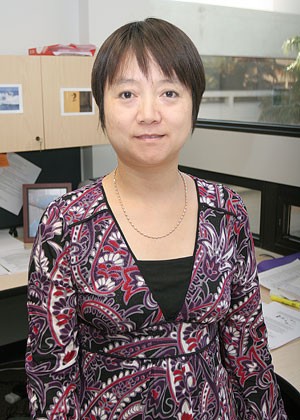Two UA professors have teamed up to stifle cancer by using cutting-edge methods.
Professors Pak Kin Wong and Donna Zhang have spent their brief stays at the university honing complementary ways to stave off and subdue cancer cells through drug combinations.
Wong, an aerospace and mechanical engineering professor, has devised technology that significantly reduces the number of tests ðneeded to find the right types and ratios of drugs to curb cancer.
The breakthrough came a few years ago while he was a graduate student at UCLA. He said he developed a closed-loop control scheme and search algorithm that tracked how cells responded to drugs in enough ways that it suddenly took as few as 30 tests to find the appropriate “”cocktail,”” as opposed to perhaps 100,000 before.
“”The application is really just for screening, and we can identify drug combination and drug cocktails for curing diseases and for disease prevention,”” he said.
Where Wong is building the aircraft, Zhang is inspecting the landing strip.
Three years ago, Zhang came to the UA from Missouri, where she had begun her research on the Nrf2/Keap1 signaling pathway.
The pathway, first explored by scientists in 1999, exists in all cells and is critical to the development of disease in humans, she said.
Oxidative stress, commonly referred to as free radicals, use the pathway to damage cells and consequently open the door for cancer, aging and other hindrances on life, she said.
Recent data shows the pathway is “”somehow disregulated”” in cancer cells, she said. She’s found that “”activating”” the pathway with drugs can prevent cancer cells from developing in the first place.
For individuals in chemotherapy, however, such activation has shown to make cancerous cells resistant to drugs. Thus it’s necessary to withhold drugs to keep cells vulnerable, she said.
“”I call it the double-edged sword of this pathway,”” she said.
The American Cancer Society is funding the professors’ research through the Arizona Cancer Center.
Wong believes his technology will be ready for use in manipulating stem cells in about five years, with the potential aim of creating and replacing organs.
“”I think there’s a lot of engineering technologies and approaches that have a great potential to significantly change the very way we study biology and biomedical systems,”” he said. “”The goal is really linking between the engineering development and, then helping, the biomedical studies.””









